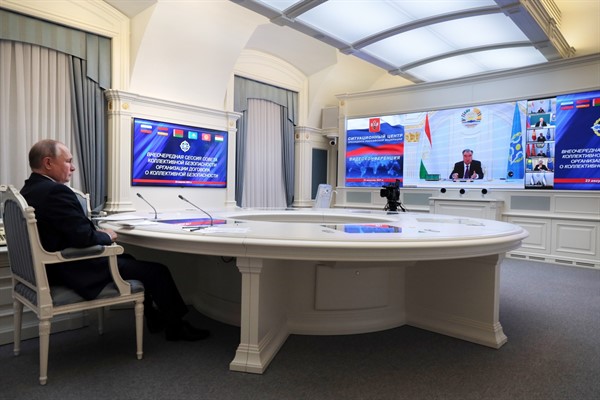While the failure of the United States’ two-decade campaign to reshape Afghanistan was a source of no little schadenfreude in Moscow, the collapse of Ashraf Ghani’s U.S.-backed government has thrust Russia into a challenging position. Even as President Vladimir Putin confirmed that Russia has no intention of deploying troops to Afghanistan itself, the potential for radicalization and violence around Russia’s borders is foisting greater responsibility for regional security on Moscow at a time of mounting domestic difficulties.
The Ghani government’s collapse and the departure of U.S. forces from central Eurasia, seemingly for good, also offers Russia a window of opportunity to bolster its role as a powerbroker both within and around Afghanistan, advance a vision of regional connectivity that boosts its own interests, and consolidate its political-military influence in neighboring Central Asia. All of these steps, however, would require more resources than Russia’s leadership has thus far been willing to invest, and greater risk than it has been willing to take on.
Russia’s interest in Afghanistan centers above all on its concerns about the impact on neighboring Central Asia. Since the Soviet collapse, Moscow has looked to Central Asia as a strategic buffer against instability further south, and Russia remains the region’s dominant security provider—notwithstanding the enormous growth of Chinese trade and investment in recent years. The Central Asian states today are on the whole more stable and effective than they were in the 1990s, which is one reason Moscow has been more sanguine about the Taliban returning to power. But Central Asia’s mostly Soviet-trained elites still see Russia as the region’s principal security guarantor and are turning to Moscow for help as Afghanistan’s future descends further into uncertainty.

